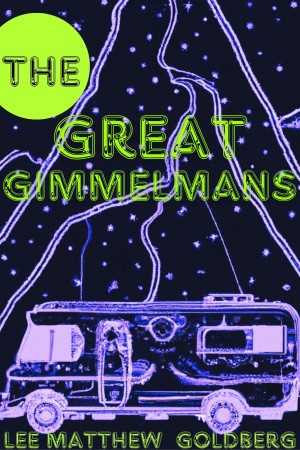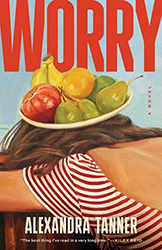
Photo by Marta Rastovac on Unsplash
In Hebrew, gimmel is a form of the word gamol, which means to nourish, ripen, or bring to maturity. From this comes the expression gemulit chessud, meaning an act of kindness. Gimmel is comprised of a vav and yud—representing a rich man running after a poor man — and the letter dalet. The yud symbolizes a foot, which connotes the giving of oneself to another. The yud is seen as the charity that is given to the dalet by the gimmel. It also echoes the word for camel, gamal. This metaphorical camel carries the burdens of life on its journey through the desert, giving sustenance to those traveling with it.
In my novel, The Great Gimmelmans, these meanings are explored through the Gimmelman family, who lose all their money in the 1987 stock market crash and begin robbing banks with their kids in tow. They’re based out of the family’s RV — the only possession of theirs not repossessed. The family patriarch, Barry, sees himself as this camel, giving sustenance to his brood through any means necessary, after their former wealth was ripped away one fatal day. For Barry, family comes first, even if it means turning into a criminal to keep food on the table. However, once he realizes how good the Gimmelman clan is at robbing banks, Barry’s pursuit shifts from mere survival to infamy.
The Gimmelmans are perfectly poised to get away with the robberies, hiding behind a façade of being nothing more than a mild-mannered Jewish family. Barry was a stockbroker from New Jersey, his wife Judith is obsessed with hats, their daughter Steph loves pop music, the narrator Aaron is too smart for his own good, and little Jenny won’t go anywhere without her taxidermied possum. The family utilizes this false appearance to their own advantage as they make their way down South, dealing with antisemitism and then using the way they’ve been treated as grounds for retaliation.
While writing this novel, I wanted to turn certain Jewish stereotypes on their head. Rarely are Jews represented in books and films as action heroes. While Barry is certainly no hero, he is proactive in changing his family’s string of bad luck. In his own mind, he does become an action-hero. And while the stereotype of Jews as money-hungry has taken hold in the past, for Barry and his brood, the act of robbing banks is not about gaining money, but rather about reclaiming their sense of control and power after the stock market crash. Additionally, Barry uses his parents, who are survivors of concentration camps, as justification for these criminal acts. He feels they deserve to witness their son become someone of importance. He refuses to roll over when life deals its blows and does whatever is needed to save his family. He morphs into a rich man chasing away the poor version of himself.
Throughout the novel, the idea of gamol — nourishing and ripening — affects each of the characters. The narrator, Aaron, must forgive his father after he sent the family down a dark path that will affect them forever. Judith must come to terms with being blindly loyal to her husband. And the rest of the kids must finally stand up to Barry once the FBI tails them, determined to take the family down. Barry, who gave his children life and believes he’s committing gemulit chessud (acts of kindness), is truly an emperor without clothes. Soon, the kids reach a certain level of maturity and come to find that they no longer see their parents as camels and nourishers of life, but rather as agents of chaos that have the potential to destroy their futures. The biggest act of kindness the children can offer their family — and themselves — is to turn their parents in when the wheels start to fall off the RV.
Lee Matthew Goldberg is the author of fourteen novels. He was nominated for an Anthony Award and the Prix du Polar. After graduating with an MFA from the New School, he’s been published in multiple languages and his writing has also appeared as a contributor in CrimeReads, Pipeline Artists, LitHub, Chicago Quarterly Review, Electric Literature, The Los Angeles Review of Books, The Millions, Vol. 1 Brooklyn, LitReactor, Mystery Tribune, and others.



